Earth and Human Activity

Educators and Parents, Sign Up for The Cheat Sheet
Weekly updates to help you use Science News Explores in the learning environment
Thank you for signing up!
There was a problem signing you up.
-
 Chemistry
ChemistryLots of makeup may contain potentially harmful ‘forever chemicals’
Hints of PFAS compounds have turned up in about half of tested makeup products. Waterproof mascaras and lipsticks were very likely to contain them.
-
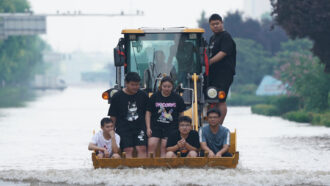 Climate
ClimateNew UN climate report finds no time for denial or delay
It links extreme weather around the globe to Earth’s changing climate.
-
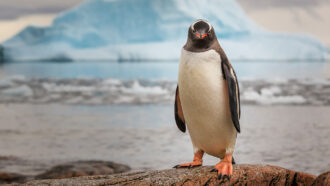 Earth
EarthLet’s learn about Antarctica
This continent is dry, windy and very cold — and home to penguins, ice and a lot of scientific research.
-
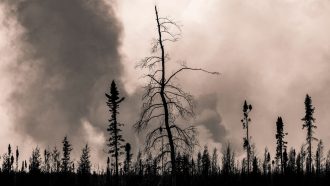 Environment
Environment‘Zombie’ wildfires can reemerge after wintering underground
Climate change may make these not-quite-dead blazes more common. Scientists are learning to predict where a zombie might emerge.
-
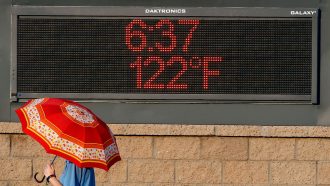 Climate
ClimateU.S. records reveal the last 30 years were the hottest on record
New ‘climate normals’ show that average temperatures increased notably just since 1990.
-
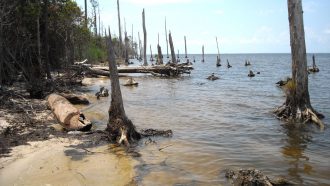 Earth
Earth‘Tree farts’ make up about a fifth of greenhouse gases from ghost forests
Heat-trapping gases from dead trees play an important role in the environmental impact of “ghost” forests.
-
 Animals
AnimalsCommon parasite may help mussels survive heat waves
By whitening shells, the organism helps the shellfish stay cool on sunny days, a new study suggests.
By Sid Perkins -
 Materials Science
Materials Science‘Smart’ pasta morphs into fun shapes as it cooks
The trick to this shape-shifting are grooves cut into the raw pasta. Those grooves affect how the noodles swell as they cook.
-
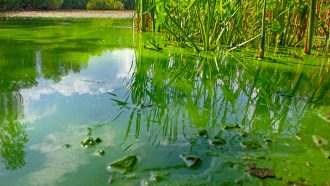 Environment
EnvironmentPond scum can release a paralyzing pollutant into the air
New study finds blooms of blue-green algae can seed the air with a poisonous pollutant.
-
 Health & Medicine
Health & MedicineWarning: Wildfires might make you itch
Western wildfires are on the rise due to climate change and land use. Now a study adds eczema to the list of health risks that smoke might trigger.
-
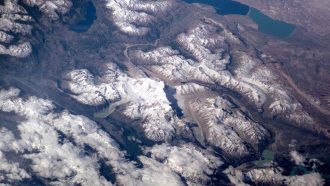 Climate
ClimateClimate may have sent drift of the North Pole toward Greenland
This mid-1990s shift in the pole’s movement was driven by glacial melt. And that was triggered in part by climate change, a new study reports.
By Sid Perkins -
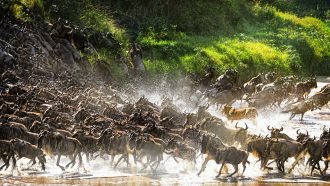 Earth
EarthOnly 3 percent of Earth’s land is unchanged by people
A sweeping survey of land-based ecosystems finds that very few still support all the animals they used to. Reintroducing lost species could help.